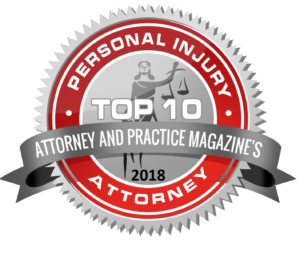A felony conviction in Virginia carries serious consequences that can change the course of a person’s life. Understanding these outcomes is important for anyone facing such charges or for their loved ones. These consequences go beyond the time spent in prison and can affect every part of life, from personal relationships to employment opportunities. The justice system in Virginia treats felonies with great seriousness, and the penalties reflect this. To fully grasp what is at stake, it is essential to explore how a felony conviction can impact different areas of life and how it can follow someone long after their sentence ends. At, NovaLegalGroup, P.C. , we are here to guide you through the legal process and help you navigate the complexities of your case.

Loss of Freedom and Civil Rights
The most immediate consequence of a felony conviction is the loss of freedom. Felonies often carry long prison sentences depending on the severity of the crime. Beyond the physical loss of liberty, a felony conviction can also strip away important civil rights. In Virginia, this includes the right to vote, serve on a jury, or hold public office. For many, this loss can feel like being cut off from their community. These rights are fundamental to being a full participant in society, and losing them can make people feel isolated and powerless.
While some rights, such as voting, can sometimes be restored through a lengthy process, it requires effort, time, and approval from the governor or other authorities. The process is not automatic, leaving many individuals without a clear path to regain their standing as full citizens. The loss of these rights demonstrates how a felony conviction can have a deep and lasting effect on someone’s relationship with society.
Impact on Employment and Career Prospects
A felony conviction can create significant obstacles when it comes to finding or keeping a job. Many employers are hesitant to hire someone with a felony record due to concerns about trust or liability. This makes it harder for individuals to earn a living and provide for themselves or their families. Even after serving time, the conviction stays on their record, showing up in background checks and creating barriers to new opportunities.
Certain professions in Virginia, such as those requiring professional licenses, may completely bar individuals with felony convictions from working in those fields. This can limit career choices and push people into lower-paying jobs with fewer prospects for advancement. For someone trying to rebuild their life, this can feel like an impossible task. It is important to understand how employers view criminal records and to prepare for the challenges of re-entering the workforce.
Challenges in Housing and Financial Stability
Finding stable housing is another area where a felony conviction can cause difficulty. Landlords often perform background checks, and many may reject applicants with felony convictions. This can lead to limited housing options, forcing individuals to settle in less desirable or more expensive living situations. The lack of stable housing can have a ripple effect, making it harder to maintain a job, access reliable transportation, or provide stability for a family.
Financial stability can also be a challenge. Beyond the struggles with employment, individuals may face fines, court fees, or restitution payments as part of their sentence. These financial obligations can pile up, especially when combined with the difficulty of finding steady work. Without adequate support, the risk of falling into debt or even homelessness increases.
Strained Family and Personal Relationships
A felony conviction does not only affect the individual but also their family and loved ones. Time spent in prison can create distance between family members, and re-entering society after serving a sentence can be a difficult adjustment for everyone involved. Trust may need to be rebuilt, and relationships may require time and effort to heal.
Children of those convicted may face additional challenges. They may experience stigma at school or in their community and may have difficulty understanding why their parent is not present. The emotional toll of a felony conviction extends far beyond the person directly involved, impacting the entire family unit.
Social Stigma and Long-Term Reputation
The label of “felon” is not one that disappears easily. Even after serving time and fulfilling all legal obligations, individuals with felony convictions often face a social stigma that can make it difficult to move forward. This stigma can affect their reputation in their community and their ability to form new personal or professional relationships.
The long-term effects of being viewed through the lens of a criminal record can wear on a person’s self-esteem and mental health. Many people feel trapped by their past, unable to fully escape the consequences of their conviction. Understanding this social stigma is an important step in addressing the barriers that prevent individuals from successfully rebuilding their lives.
Difficulties in Education and Personal Growth
A felony conviction can also limit access to higher education and personal growth opportunities. Some schools may deny admission to applicants with felony records, while others may not offer financial aid or scholarships. Without these resources, pursuing a college degree or vocational training becomes significantly harder.
Education is often a pathway to better employment and personal development, and barriers to accessing it can keep individuals from reaching their full potential. For those who want to turn their life around, the lack of educational opportunities can be a discouraging obstacle that limits their future options.
Choosing a Criminal Defense Attorney Bailing Someone Out of JailRelated Videos
How the Legal System’s Decisions Shape Lives
The legal system in Virginia has specific guidelines for handling felony cases, and the outcome of these cases can shape a person’s life forever. Felonies are divided into classes based on the seriousness of the crime, with Class 1 felonies carrying the most severe penalties. Judges and prosecutors take into account various factors when deciding sentences, including the circumstances of the crime and the individual’s prior record.
While every case is unique, the long-term consequences of a felony conviction are consistent in their seriousness. Legal decisions made during the trial and sentencing process can determine the future of the accused in profound ways. Understanding how the system works is key to navigating these cases and seeking the best possible outcome.
Restoring Rights and Moving Forward
Despite the many challenges that come with a felony conviction, it is possible to take steps toward restoring rights and rebuilding a meaningful life. In Virginia, individuals may petition to have certain rights restored, though the process can be complex and time-consuming. Having legal guidance can make this process easier and increase the chances of a successful outcome.
Efforts to rebuild after a felony conviction require determination and support. By focusing on employment, education, and community involvement, individuals can create new opportunities for themselves. While the road is not easy, understanding the available resources and legal options is a vital part of moving forward.
Facing the consequences of a felony conviction is a daunting experience. The legal, personal, and social effects are far-reaching, and the road to recovery is filled with obstacles. However, you do not have to face these challenges alone. Legal guidance can make a significant difference in understanding your rights, navigating the justice system, and planning for the future.
At NovaLegalGroup, P.C., our dedicated team is here to help individuals and families facing the difficulties of felony convictions. We provide the guidance and support needed to address legal challenges and work toward a brighter future. If you or a loved one is dealing with a felony case in Virginia, contact NovaLegalGroup, P.C. today to learn how we can assist you.










